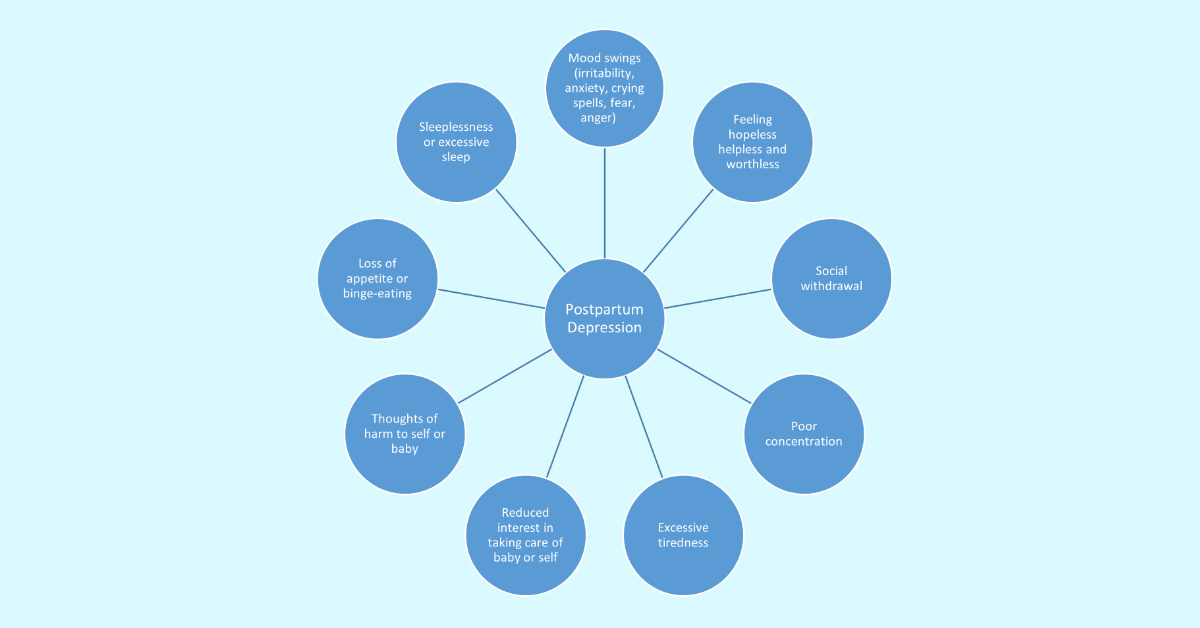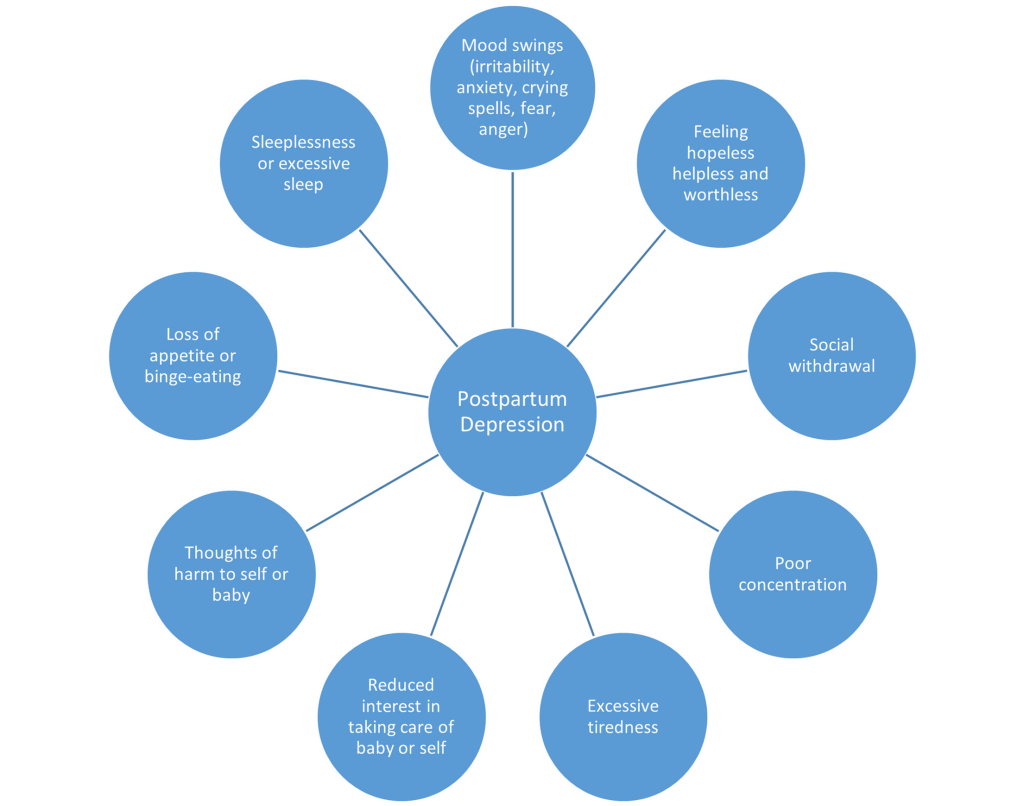Motherhood is blissful? Not for all new mothers.

Becoming a mother is noted to be such a joyful feeling. We have seen the beaming faces of our celebrities like Anushka and Kareena post the birth of their children and rejoiced along with them. Sadly, not all new mothers go through such profound happiness. Nithya (name changed), 29 years old, found motherhood to be an extremely stressful phase, during which she felt anxious, overwhelmed, and sleep deprived, making it difficult for her to bond with her baby.
After child-birth, most mothers commonly experience ‘baby blues’, which lasts for up to 2 weeks. The new mother, in this case, has mood swings, crying spells, anxiety, sleep disturbances and often feels overwhelmed. For some mothers, however, the symptoms do not resolve in two weeks, instead they become more intense over time and may last for months. This mental health condition is known as Post-partum Depression (PPD).
Postpartum depression requires attention and treatment as it interferes with the ability to take care of baby as well as leads to neglect of self-care.
Symptoms of PPD at a glance:

PPD arises as a complication of childbirth and is triggered by hormonal changes. During pregnancy there are high levels of estrogen and progesterone hormones which return back to pre-pregnancy levels post child-birth. This sudden drop in levels result in physical and emotional changes. In our country, socio-cultural factors, like desire for a male child, also play a role in causing depression.
PPD is not specific to mothers alone. Fathers are also known to suffer from this condition. Those at risk are usually young fathers having a history of depression. They may also be experiencing relationship and financial difficulties.
PPD, if left untreated can lead to depression in partner as well as behavioural and emotional problems in the child. Research has pointed at cognitive and language delays in children whose mothers did not seek immediate help for their depression.
There is a more rare and severe form of PPD which exists, known as postpartum psychosis. This is characterized by obsessions of harm to self or baby, disorientation, hearing voices, restlessness, feeling suspicious or fearful, insomnia and life threatening behaviours. This is considered as a medical emergency and the parent experiencing this requires immediate treatment and must reach out to a mental health professional.
PPD is a treatable condition and the following recommendations will help:
· Focus on self-care: Ensuring adequate sleep, exercise and nutritious diet. Getting massages done post child-birth would enhance feelings of relaxation. It is important to note that the feelings of depression does not have anything to do with what kind of mother one is or how much love one has towards the baby. It is thus important to be kind to oneself and ensure good self-care during this phase.
· Social support: Reaching out to friends and family for help in managing house and child, delegating responsibilities, and joining support groups (example, forums like breastfeeding support groups for Indian mothers on Facebook), would reduce the feelings of helplessness that arises post childbirth.
· Psychotherapy: Sessions would help manage the depressive thoughts, negative emotions, body image issues, and improve relationships.
If you suspect yourself or your loved one to be going through the symptoms of PPD, do not hesitate to reach out for help. It is the right of every mother to enjoy motherhood and provide adequate care to the new-born who is solely dependent on her.
Contact Us or Book an Appointment if you think you have Post Partum Depression or if your loved is having symptoms of PPD.
Unified Brain Health Care is one of a kind integrated Neuro Rehabilitation Centre in Chennai for adults and children offering in person and online therapy in Cognitive Neuropsychology, Clinical Psychology, Psychiatry, Speech Therapy, Physiotherapy, Occupational Therapy, Clinical Nutrition, Career Counselling, Fitness Coaching and Educational Intervention. We also offer Family and Marriage Counselling, help for PCOS, care during pregnancy, post-pregnancy care for new moms, infant and early childhood stimulation, infant and young child nutrition, care for caregivers and promote holistic brain health.
